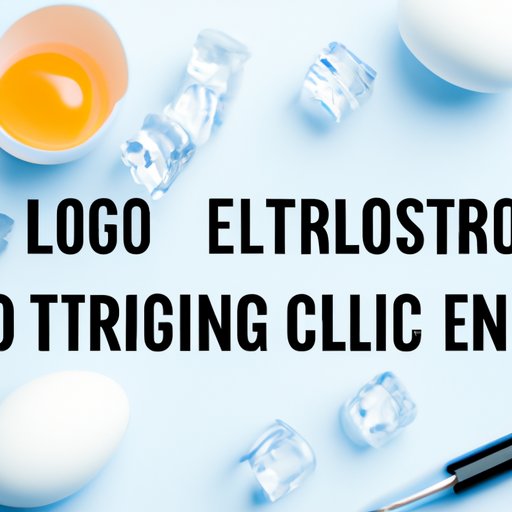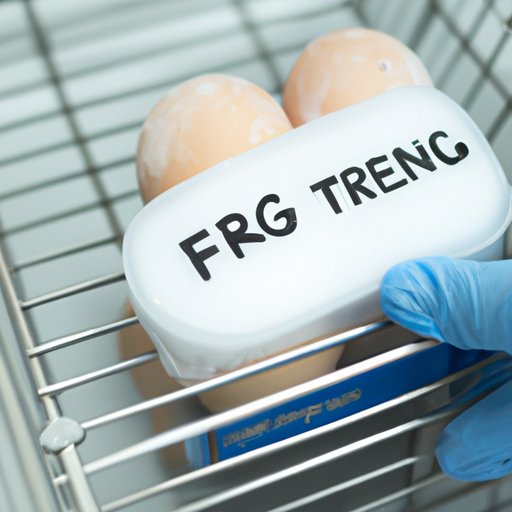Introduction
Egg freezing, also known as oocyte cryopreservation, is a medical procedure that allows women to freeze their eggs for future use in fertility treatments. Egg freezing makes it possible for women to delay or even prevent age-related infertility, allowing them to extend their reproductive years and potentially improve their chances of having a successful pregnancy in the future. In this article, we’ll explore how egg freezing works, who can benefit from the procedure, and the potential risks and costs associated with it.

Egg Freezing 101: Understanding the Basics
Before diving into the details of how egg freezing works, let’s take a look at what’s involved in the process. Egg freezing is a fairly simple procedure that involves harvesting a woman’s eggs, freezing them, and then storing them in a laboratory until they are ready to be used in a fertility treatment. The entire process typically takes about two weeks and is done under the supervision of a fertility specialist.
So, who can benefit from egg freezing? Women who are facing age-related infertility, those who are undergoing chemotherapy or other medical treatments that might affect their fertility, and those who want to delay motherhood for personal reasons can all benefit from egg freezing. Additionally, single women or same-sex couples who are interested in preserving their fertility may choose to undergo egg freezing in order to have children at a later date.
Exploring the Pros and Cons of Egg Freezing
Like any medical procedure, egg freezing has its pros and cons. On one hand, it can provide women with peace of mind knowing that they have taken steps to preserve their fertility. It also gives them more freedom to pursue their career or other life goals without worrying about their biological clock running out. On the other hand, there are some risks associated with egg freezing, such as the potential for damage to the eggs during the freezing process or an increased risk of birth defects if the eggs are used in a future fertility treatment.
A Step-by-Step Guide to the Egg Freezing Process
If you’ve decided to pursue egg freezing, here’s a step-by-step guide to the process:
Pre-Procedure Screening: Before undergoing egg freezing, you will need to undergo a series of tests to assess your overall health. This includes blood tests, ultrasounds, and genetic testing. Your doctor may also recommend lifestyle changes, such as quitting smoking or increasing your intake of folic acid, to improve your chances of success.
Egg Retrieval Procedure: Once your pre-procedure screening is complete, you will be ready to undergo the egg retrieval procedure. This is done under general anesthesia and involves a doctor using a needle to extract eggs from your ovaries. The retrieved eggs are then frozen using a process called vitrification.
Egg Storage and Monitoring: After the eggs have been frozen, they will be stored in a laboratory for future use. Your doctor will check on the eggs periodically to make sure they are still viable. When you are ready to use the eggs in a fertility treatment, they can be thawed and implanted in your uterus.
The Cost of Egg Freezing: Is It Worth It?
Egg freezing is not cheap. The average cost of the procedure ranges from $8,000 to $15,000, depending on your location, the clinic you go to, and the number of eggs you choose to freeze. However, this cost can potentially be offset by the benefits of investing in egg freezing. For example, if you decide to pursue fertility treatments in the future, you won’t have to pay for the cost of retrieving and freezing new eggs.
Conclusion
Egg freezing can be a great option for women who want to preserve their fertility. It is important to understand the risks and costs associated with the procedure before making a decision. If you think egg freezing is right for you, talk to a fertility specialist to learn more about the process and determine if it is the best option for your situation.
(Note: Is this article not meeting your expectations? Do you have knowledge or insights to share? Unlock new opportunities and expand your reach by joining our authors team. Click Registration to join us and share your expertise with our readers.)
